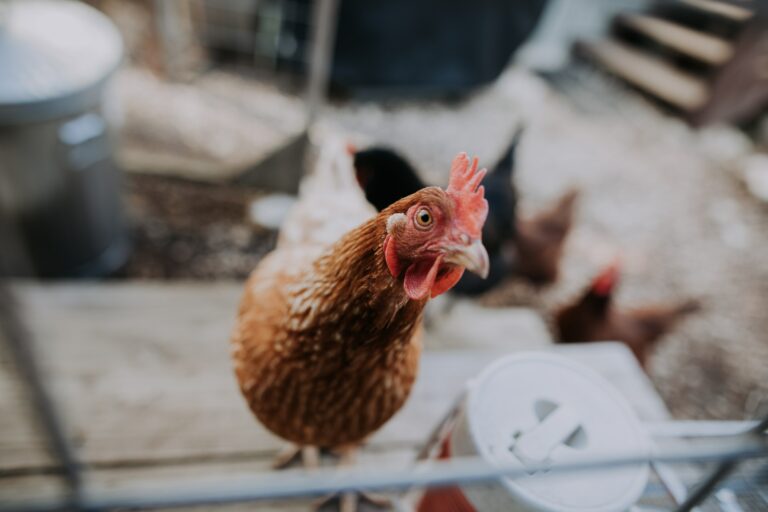Scientists have used gene-editing techniques to stop the bird flu virus from spreading in chicken cells grown in the lab.
Bird flu is a major threat to farmed chickens worldwide, with severe strains killing up to 100% of birds in a flock. In rare instances, certain variations of the virus can infect people and cause serious illness. Efforts to control the spread of the disease are urgently needed.
Scientists have used gene-editing techniques to stop the virus from spreading in chicken cells grown in the lab.The findings raise the possibility of producing gene-edited chickens that are resistant to the disease.
Preventing hijacking by flu viruses
Scientists prevented the virus from taking hold by deleting a section of chicken DNA inside lab-grown cells.
They targeted a specific molecule inside chicken cells called ANP32A. Researchers at Imperial College London found that during an infection, flu viruses hijack this molecule to help replicate themselves. Working with experts from the Roslin Institute, the researchers used gene-editing techniques to remove the section of DNA responsible for producing ANP32A.
They found the virus was no longer able to grow inside cells with the genetic change. The next step will be to try to produce chickens with the genetic change. No birds have been produced yet, the team says.
The study was funded by the UK Government’s Biotechnology and Biological Sciences Research Council. PhD student funding was provided by the global poultry research company Cobb-Vantress. The research is published in the journal “eLife”.
The smallest possible genetic change
“This is an important advance that suggests we may be able to use gene-editing techniques to produce chickens that are resistant to bird flu. We haven’t produced any birds yet and we need to check if the DNA change has any other effects on the bird cells before we can take this next step,” said Dr Mike McGrew, Group Leader, Roslin Institute.
“We have long known that chickens are a reservoir for flu viruses that might spark the next pandemic. In this research, we have identified the smallest possible genetic change we can make to chickens that can help to stop the virus taking hold. This has the potential to stop the next flu pandemic at its source.” Professor Wendy Barclay, Chair in Influenza Virology, Imperial College London
“Avian influenza resistance in broiler production is of global significance and this research is an important step toward that goal. It is exciting for Cobb to be a part of exploring new technologies that could be used to advance poultry breeding in the future.” Rachel Hawken, Senior Director of Genomics and Quantitative Genetics, Cobb-Vantress.
Previous research
Researchers at the Roslin Institute previously worked with experts from Cambridge University to produce chickens that did not transmit bird flu to other chickens following infection, using genetic modification techniques. The new approach is different because it does not involve introducing new genetic material into the bird’s DNA.


